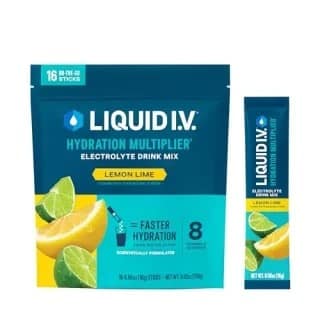
A new class action lawsuit has been filed against Unilever United States Inc., alleging that its Liquid I.V. Lemon Lime Electrolyte Drink Mix packets are sold half-empty, misleading consumers about the actual quantity of product. This case has drawn attention to potential violations of California law, consumer protection regulations, and federal guidelines regarding product packaging.
Background of the Class Action
The complaint, filed by Plaintiff Jessica Argueta in California federal court, claims that Liquid I.V. Lemon Lime packets are packaged in a way that creates the appearance of more product than is actually included. The lawsuit seeks to represent a class of California consumers who purchased the drink mix for personal use since September 2021.
Argueta alleges that Unilever’s practices violate multiple California statutes, including California’s Unfair Competition Law, California’s False Advertising Law, and the Consumers Legal Remedies Act. Consumers affected by these practices are seeking remedies such as injunctive relief, attorneys’ fees, compensatory damages, restitution, and statutory penalties.
Slack-Fill and Misleading Packaging
A key focus of the lawsuit is the presence of nonfunctional slack-fill in the Liquid I.V. packets. Slack-fill refers to empty space in packaging that is not required for product protection, safety, or functional purposes. According to the lawsuit, the packets are underfilled to save costs while misleading consumers into believing they are purchasing a full serving.
This issue raises concerns under FDA slack-fill rules, Federal Food, Drug & Cosmetic Act, and other federal regulations designed to protect consumers from deceptive packaging practices. Plaintiffs argue that the oversized packaging influences purchasing decisions and creates unfair advantages over competitors’ Electrolyte powders and other Hydration Multiplier products.
Composition and Health Claims
The Liquid I.V. Lemon Lime Electrolyte Drink Mix is marketed as a Dietary supplement and Electrolyte Drink Mix, containing ingredients such as citric acid, potassium citrate, sodium citrate, and Vitamin C (ascorbic acid), intended for Immune Support and proper hydration. Additional components like silicon dioxide may be present for anti-caking purposes.
The plaintiffs argue that the packaging misrepresents the quantity of these ingredients, making consumers believe they are receiving a full serving of Energy Multiplier or Sleep Multiplier benefits. Misleading labeling and over-sized packaging may affect not only consumer trust but also purchasing decisions.
Industry Context
This lawsuit follows a trend in the beverage and dietary supplement industry, where several companies have faced class action lawsuits for packaging and labeling practices. Similar cases include lawsuits against PepsiCo for oversized packaging and misleading representations, emphasizing the legal scrutiny around net weight, nutrition facts panel, and product claims.
In the broader food industry, regulatory bodies like the Federal Trade Commission (FTC), Department of Justice, and voluntary compliance programs monitor deceptive marketing and packaging practices. Companies failing to comply risk civil penalties or enforcement actions.
Legal Implications
The lawsuit, Argeuta v. Unilever United States Inc., Case No. 2:25-cv-08260, is pending in the U.S. District Court for the Central District of California. If successful, the case may result in:
- Monetary compensation for affected consumers
- Changes to Liquid I.V. Lemon Lime Electrolyte Drink Mix packaging
- Enhanced transparency in consumer protection practices
- Precedents for handling misleading Electrolyte replacements, Oral rehydration solutions, and B vitamins in powdered supplements
Consumers affected may also have recourse under Proposition 65, Sherman Law, or other California and federal laws governing truthful labeling and advertising.
Steps Consumers Can Take
- Keep receipts and document purchases of Electrolyte Drink Mix packets.
- Compare actual product volume against packaging claims using a food scale.
- Monitor updates regarding the class action lawsuit and eligibility to join the case.
- Consult with a legal professional experienced in consumer protection, False Advertising Law, and Consumers Legal Remedies Act claims.
- Report misleading packaging or potential violations of FDA regulations or FTC Act to appropriate authorities.
Broader Implications for Consumer Rights
This case highlights the importance of accurate labeling and transparency in dietary supplements and beverages. Consumers rely on claims like Hydration Multiplier, Immune Support, and Energy Multiplier to make informed choices. Misleading packaging not only violates trust but also may constitute a violation of class action statutes and federal consumer protection laws.
With the growing popularity of products like Liquid I.V., Pedialyte electrolyte drinks, and other Oral rehydration solutions, it is crucial for companies to maintain integrity in labeling and marketing. Enforcement of FDA slack-fill rules and adherence to California law can protect consumers from being misled.
Conclusion
The Liquid I.V. The class action lawsuit underscores the need for transparency in the food and dietary supplement industry. With allegations of half-empty Electrolyte Drink Mix packets, consumers are asserting their rights under California’s UCL, False Advertising Law, and the Consumers Legal Remedies Act. Affected individuals have the opportunity to seek restitution and influence industry standards for packaging and marketing.
About Ted Law
At Ted Law Firm,We serve families across Aiken, Anderson, Charleston, Columbia, Greenville, Myrtle Beach, North Augusta and Orangeburg. assists clients navigating complex legal issues, including class action lawsuits, consumer protection, and dietary supplement claims. Our team ensures that individuals understand their rights, evaluates evidence thoroughly, and provides guidance to pursue fair compensation. We are dedicated to protecting clients’ interests and holding companies accountable under law.Contact us today for a free consultation.
